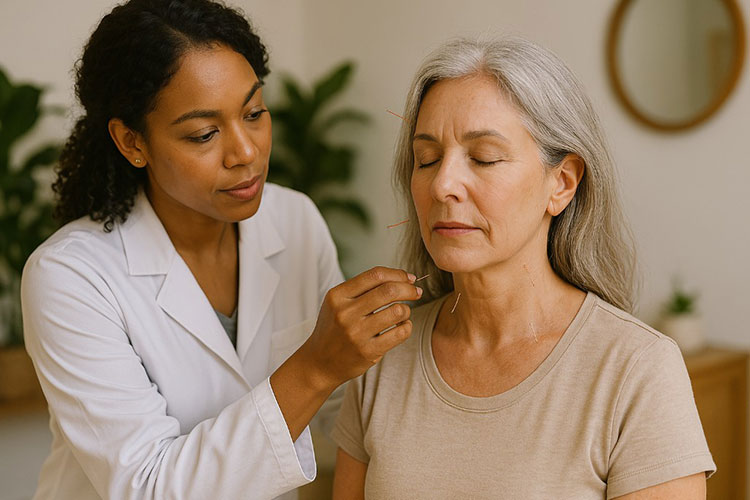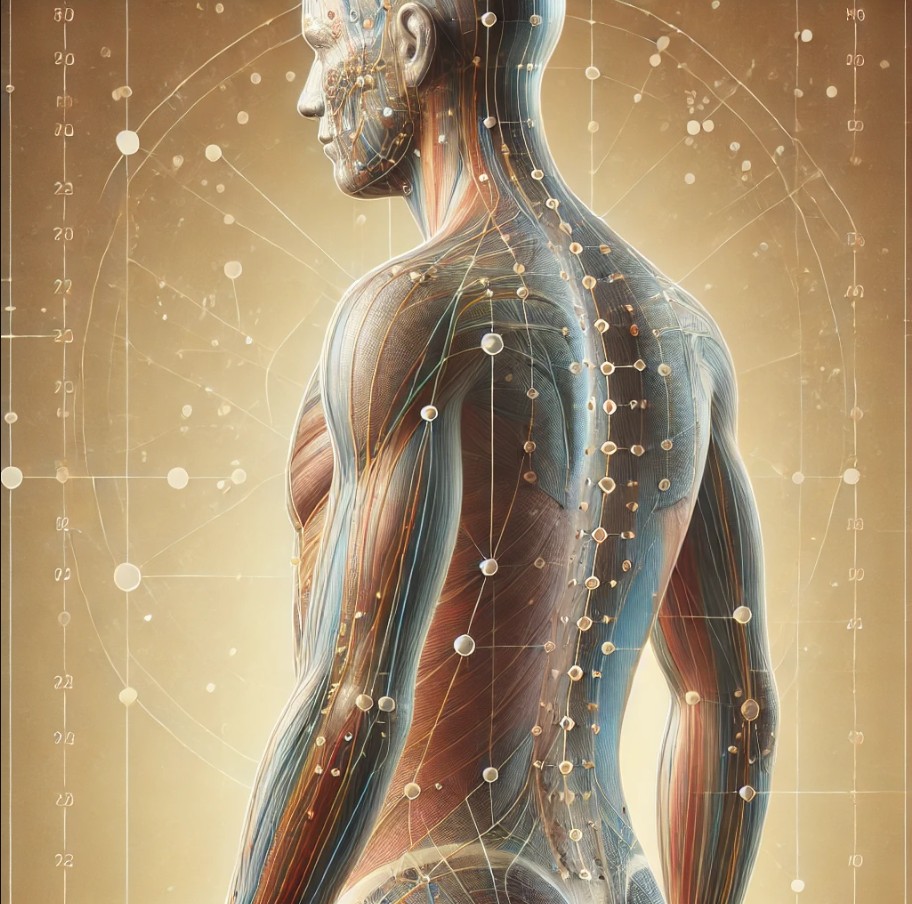The Hidden Toll of Alcohol: How It Disrupts Sleep, Triggers Anxiety, and Leads to Dependence
Dr. Tatyana's Health and Wellness Blog
Treating the whole person to restore optimal health. Check back often for up-to-date news and information about acupunture and Chinese medicine.
Most Recent Posts ...
Posted on: 3/31/2025
Posted on: 3/3/2025
Posted on: 2/3/2025
Search All Blog Posts
Blog Post Archive Categories
- The Hidden Toll of Alcohol: How It Disrupts Sleep, Triggers Anxiety, and Leads to Dependence
- Why Working with a Qualified Medical Professional is Essential for Weight Loss
- How Motivation Affects Our Health and How Hypnotherapy Can Help
- Boosting Metabolism During Menopause: How Acupuncture Can Help
- The Science Behind Acupuncture: How It Works and What Happens in Your Body
- Acupuncture for Menopause: Natural Relief for Hot Flashes, Sleep Issues, and Hormonal Balance
- The Importance of Exercise and How to Stay Motivated for a Healthier You
- The Power Trio: Vitamin D3, Omega-3, and Probiotics - Essential Daily Benefits
- Holistic Pain Relief Checklist
- Shortened Sleep Cycles: Alcohol reduces the time spent in REM sleep, leading to fragmented and poor-quality sleep.
- Frequent Nighttime Awakenings: As the body metabolizes alcohol, it causes sudden wake-ups, leaving people feeling exhausted the next day.
- Increased Risk of Sleep Apnea: Alcohol relaxes throat muscles, making airway obstruction more likely, contributing to sleep apnea and snoring.
- Dehydration and Night Sweats: Alcohol’s dehydrating effects cause excessive sweating and discomfort, further disrupting sleep patterns.
- Rebound Anxiety: Alcohol suppresses the central nervous system, creating a short-term calming effect. However, as the alcohol wears off, the body experiences a rebound effect, increasing anxiety levels.
- Impaired Brain Chemistry: Alcohol disrupts neurotransmitter balance, reducing serotonin and dopamine production, which are critical for emotional stability.
- Increased Heart Rate: Alcohol consumption leads to rapid heart rate fluctuations, creating a sense of panic and unease.
- Tolerance Build-Up: Over time, the body requires larger amounts of alcohol to achieve the same sedative effect.
- Withdrawal Symptoms: Individuals who try to cut back may experience withdrawal symptoms such as irritability, insomnia, nausea, sweating, and severe anxiety.
- Emotional Reliance: Alcohol becomes a crutch for handling stress, leading to psychological dependence.
- Physical Addiction: Chronic use alters brain chemistry, making quitting difficult without professional intervention.
- Reduces Alcohol Cravings: Certain acupuncture points, such as Shen Men and Liver 3, help detoxify the body and minimize withdrawal symptoms.
- Restores Sleep Patterns: Acupuncture stimulates the production of melatonin, helping regulate sleep cycles naturally.
- Eases Anxiety and Stress: By balancing the flow of Qi (energy), acupuncture can reduce anxiety levels and promote relaxation.
- Breaks Negative Thought Patterns: Hypnosis helps reprogram the mind to stop associating alcohol with relaxation and instead create healthier coping mechanisms.
- Improves Sleep Quality: Guided hypnosis sessions promote deep relaxation, making it easier to fall and stay asleep.
- Reduces Emotional Triggers: Hypnotherapy can help individuals deal with past traumas that contribute to alcohol misuse.
- Restores Normal Brain Activity: Alcohol disrupts brainwave patterns, leading to mood swings and anxiety. Neurofeedback helps correct these imbalances.
- Improves Focus and Mental Clarity: This therapy enhances cognitive function, making it easier to manage stress without alcohol.
- Enhances Emotional Regulation: Individuals gain better control over their emotions, reducing the need for alcohol as a coping mechanism.
The Hidden Toll of Alcohol: How It Disrupts Sleep, Triggers Anxiety, and Leads to Dependence

In today’s fast-paced world, silent alcohol consumption has become an escape for many. Whether it’s a glass of wine after work or weekend binge drinking, alcohol is often used as a way to relax. However, what many people fail to realize is how alcohol consumption negatively impacts sleep, increases anxiety, and can lead to alcohol dependence. Understanding these effects and exploring natural remedies such as acupuncture, hypnotherapy, and neurofeedback therapy can provide a path to healing.
How Alcohol Disrupts Sleep and Causes Insomnia
Many people believe alcohol helps them sleep better, but the truth is the opposite. While alcohol may make you feel drowsy initially, it significantly disrupts the sleep cycle by interfering with REM sleep, the restorative stage essential for cognitive function and emotional stability.
Over time, chronic sleep disturbances due to alcohol use can contribute to insomnia, fatigue, and an increased dependence on alcohol to induce sleep—a dangerous cycle leading to further complications.
The Link Between Alcohol and Anxiety
Many turn to alcohol as a way to calm their nerves and alleviate stress. While alcohol provides temporary relief, it actually worsens anxiety in the long run.
Long-term alcohol use can lead to chronic anxiety, panic attacks, and even depression, making it even harder for individuals to cope with daily stressors without alcohol.
The Road to Dependence: How Alcohol Becomes Addictive
Regular alcohol use can quickly develop into dependence, especially when used as a coping mechanism for sleep issues and anxiety.
Breaking free from alcohol dependence requires both mental and physical healing, which is where holistic therapies play a crucial role.
Natural Remedies for Alcohol Dependence, Insomnia, and Anxiety
While conventional treatments like therapy and medication can help, many people find success in natural healing modalities. Acupuncture, hypnotherapy, and neurofeedback therapy offer effective ways to restore balance and heal the body without reliance on pharmaceuticals.
Acupuncture for Alcohol Recovery and Anxiety Relief
Acupuncture is an ancient Chinese medicine practice that helps restore energy balance, calm the nervous system, and reduce cravings.
Hypnotherapy to Rewire the Subconscious Mind
Hypnotherapy works by accessing the subconscious mind and addressing the root cause of alcohol dependence.
Neurofeedback Therapy to Rebalance Brain Waves
Neurofeedback therapy is a brain-training technique that helps retrain the nervous system for optimal function.
A Holistic Approach to Alcohol Recovery
Alcohol consumption, when unchecked, can wreak havoc on sleep, mental health, and overall well-being. The cycle of insomnia, anxiety, and dependence often goes unnoticed until it becomes a significant problem.
By integrating holistic therapies like acupuncture, hypnotherapy, and neurofeedback therapy, individuals struggling with alcohol-related issues can regain balance, improve sleep, and reduce anxiety—without the need for continued alcohol use.
Healing is possible, and with the right support, breaking free from alcohol dependency can lead to a healthier, more fulfilling life. If you or someone you know is struggling with alcohol-related sleep disturbances or anxiety, exploring natural medicine may be the key to long-term wellness.




